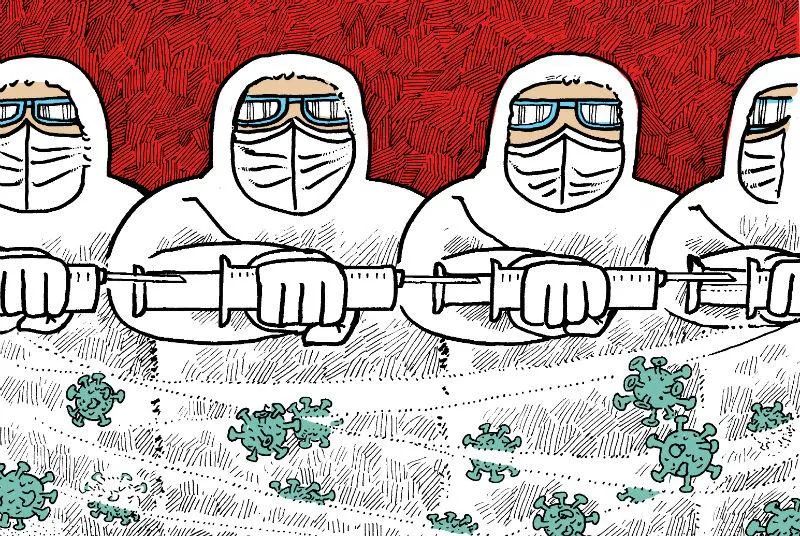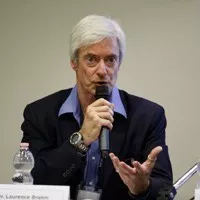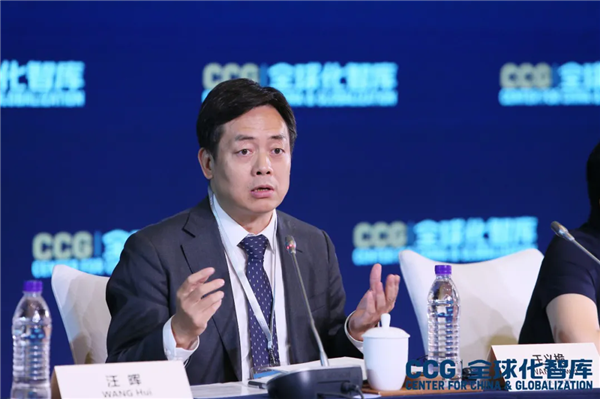Laurence Brahm: Global unity needed to beat coronavirus
March 12 , 2020

By Laurence Brahm, a senior international research fellow at CCG
President Xi Jinping personally inspected Wuhan on March 10, announcing the coronavirus crisis has been met head-on and vowed to win the war against coronavirus. The makeshift hospitals used to quarantine and cure coronavirus patients have been officially closed. Healthcare workers were seen removing their masks in celebration of their control over the coronavirus spread.
China’s sacrifices and those of Wuhan in particular, have been not only for China, but for the world. Now it looks like China has the formula for defeating this coronavirus. And those that belittled China’s methods may very well be the ones who need to apply them.
When coronavirus erupted in China this past January, America underestimated China’s ability to get it under control. As China adopted national and regional quarantine measures, Western media belittled China, even insulting the nation with derogatory headlines. Washington think tank “experts” predicted the worst for China economically, socially and politically. Now China has defeated the coronavirus and is overseeing a gradual resuscitation of its own economy. As coronavirus spreads globally, the world has a lot to learn.
Cultural factors played an important role in China’s success in containing coronavirus. China’s Confucian traditions were prevalent, as a systematic coordinated and organized response worked throughout the system of government, from the top leadership to grassroots neighborhood organizations.
The collaborative and cohesive response of people to undergo self-quarantine and cooperate with authorities is hard to replicate in other countries, and this has much to due with the Confucian respect for senior decisions and the ability to implement those decisions throughout the social organization and structure.
Taoist elements can be observed in the flexibility of people to recognize danger and adapt to change. This ability to recognize the need to change or to flow like water with a situation is another cultural factor unique to China, underlying the successful ability of the government to muster national response.
The Buddhist element of viewing all things as part of an integrated matrix of interconnectivity was a factor that influenced the cohesiveness of people to work together for not only their own interest, but to see the interest of others as mutually part of their own.
This is where Xi’s concept of a shared destiny of mankind comes in, and was demonstrably embraced by people across the country in the interest of their communities, nation and the world.
China’s collective response to the coronavirus is a statement on the resilience of the Chinese people and their ability to come together when facing a crisis or threat in a collective manner. When everything is good and prosperous, people may have their own interests. When everyone is facing a common threat, those concerns are put aside for the common good. That is China’s culture.
The culture of each country comes through in its response to the coronavirus. In the case of the United States, the response is quickly becoming politicized. Even at the outset of the coronavirus outbreak in America, gun sales have shot up by an estimated 500 percent. While one political party may dismiss the seriousness of the coronavirus, the other party criticizes their handling of it. The outcome is division rather than unity, and a host of misinformation spreads in all directions from underestimating or dismissing the seriousness among some groups and communities, to rushes on stores emptying shelves by others. Each city and state responds differently depending on its own perception of the coronavirus threat.
China’s experience with coronavirus, as with SARS, proves quarantine and isolation limit and reduce the human environment that can host the coronavirus. China’s experience is now more valuable than ever for other countries that must face this threat head-on. China has already sent its own medical teams to aid coronavirus-stricken Italy. Other countries will also require China to provide its experience and knowledge in containing and combating this pandemic.
Now it is time for the Western media to stop criticizing China’s methods, and instead understand them. They need to explain how these methods can be applied in different cultures and communities now facing the crisis. How China’s experience can be adapted relevantly and rationally in each country facing this crisis is the question everyone must consider, and this should be the new focus of global media covering the crisis.
Xi’s concept of a “shared common destiny of mankind” may suddenly carry new meaning to people everywhere. We are all in this thing as one. Experience in China, and now in other countries, has demonstrated one thing. When the coronavirus strikes it strikes hard, fast and mercilessly. The coronavirus does not recognize national boundaries, ideologies or political parties. It is a threat to us all and requires all of us to put aside our differences and fight it together.

Laurence Brahm, a senior international research fellow at Center for China and Globalization(CCG) and founding director of the Himalayan Consensus, an author of Zhu Rongjiand the Transformation of Modern China.
Laurence Brahm is also 2019 recipient of the China Friendship Award at the 70th anniversary celebrations of the PRC. In 2016 he received the Social Responsibility Award for his contribution to China’s environmental policy of ecological civilization.
Topical News See more






